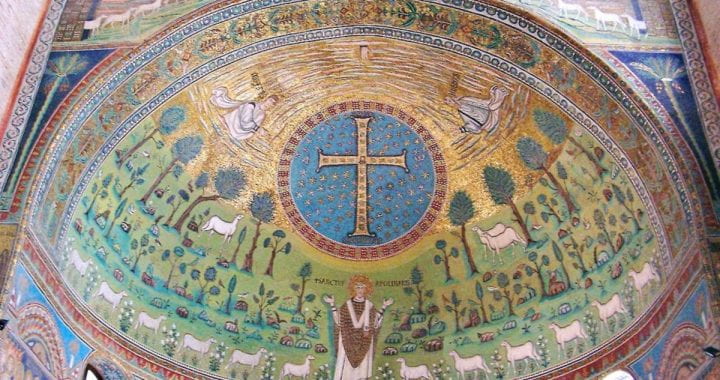Readers have always been fascinated by Dante’s distinctive habit of placing episodes from Scripture side by side with ancient pagan myths, as though the latter had a comparable authority. As my reading shows, a popular medieval school text, known as the Eclogue of Theodulus (Ecloga Theoduli), supplied a fitting precedent and model for this practice and might have suggested some specific series of examples that Dante stages in his Purgatorio. By constructing a system of parallel mythological and biblical examples, the Ecloga Theoduli featured a syncretic account of universal history that suggested mythology was a prefiguration of the events recounted in the Bible. Whereas the Ecloga depicts a clash between Christian and pagan cultures, however, dismissing the latter as a lie, Dante harmonizes the two traditions, providing a syncretic program for the moral instruction of the Christian reader. Although the Purgatorio’s syncretic discourse constituted a remarkable innovation, which exerted long-lasting influence on later authors, it nonetheless retained some of the cultural limitations imposed by the Ecloga—as, for instance, in the representation of Virgil’s inability to cross the river Lethe in Eden. The chapter goes on to argue that first in Paradiso 19 and then in his last work, the second Egloga to Giovanni del Virgilio, Dante obliquely criticizes the Ecloga Theoduli’s condemnation of ancient poetic wisdom. The case of the Ecloga, therefore, well encapsulates Dante’s conflicting attitude toward his own education. The paper ends by showing that Boccaccio’s eclogue Olympia (Buccolicum Carmen 14) provides a sophisticated parody and refutation of the Ecloga Theoduli that takes as its model and interlocutor Dante’s wrestling with the same text in his own oeuvre.
Filippo has been part of the Literature Department at UCSC since 2019. He works on Dante, Petrarch, Boccaccio and lay education in the Middle Ages and the Renaissance. He is interested in the ways literature and education (particularly literacy) intersect with and inform each other. He has published mostly on the topic of Dante’s intellectual formation and is currently writing a book provisionally titled “Training the Reader: Dante and the Rise of Vernacular Literacy.” The book investigates Dante’s debts to his earliest scholastic readings and his critical stance toward contemporary education.
Date | Time
May 4, 2022 | 12:15 – 1:30 PM [PST]
RSVP by 11 AM on Wednesday, May 4th; you will receive the Zoom link and password at 11:30 AM the day of the colloquium.
To RSVP for the entire Spring 2022 series, please fill out this form.

